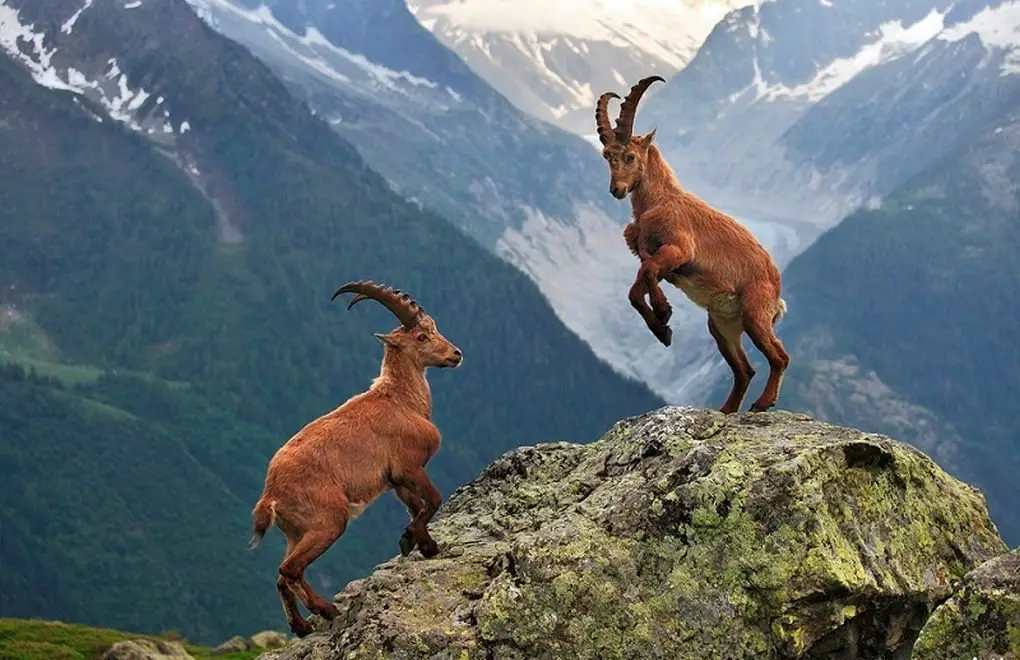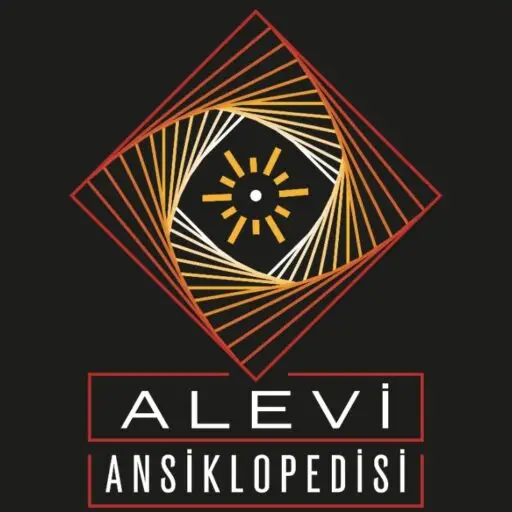Xızır's Sacred Herd (Bezoar Goats)
The Holy Shepherds of the Bezoar Goats
The bezoar ibex is a subspecies of the European bezoar goat (Capra aegagrus aegagrus; Turkish: Bezuvar), originating in the Armenian highlands and native to several other West Asian countries. Bezoar goats are known for their ability to climb very high and very narrow mountain slopes and cliffs. In Armenian culture, they symbolise strength and bravery. Many Armenian circle dances, including the popular shepherd’s dance Kochari (from ” kochel” – “to move back and forth; to nomadize”), imitate the movements of fighting bucks.
Wild goats were domesticated in Iran as early as 10,000 BC. From there, domestic goats spread across the globe. Thus, all European domestic goats are descended from Asian ancestors.
Xızır (Turkish, Hızır) plays a central role in the Alevi faith of the Raa Haq community of Dersim. The saint, who drank the water of life and is considered immortal, is regarded as the patron saint of travellers and a patron saint of those in need. He is said to appear to people mostly in the form of a white-bearded old man with strikingly luminous features. He embodies hope and grace. The wild mountain goats living in the Dersim region, which are considered sacred beings, are closely linked to Xızır and other mythological figures. They are regarded as Hızır’s sacred herd and as spiritual, protective, testing, and healing beings. It is taboo to kill them, as this constitutes an attack on the sacred.
Three other mythical saints are also said to be the goats’ shepherds – Sarik Sivan, Sıx Ahmet Dede, and Düzgün Baba. Düzgün – which might be a Turkicised version of a Kırmancki (Zazaki) word meaning sharp rocks or cliffs – is the most famous of them. [1] Regardless of the special veneration of these and other wild animals, the Alevi Raa Haq faith as a whole exhibits a strong sense of responsibility for fellow creatures, which are regarded as equal, and for the entire creation.
Endangerment
Bezoar goats were once hunted not only for their meat, horns, and fur, but also for their so-called “bezoars” (from the Persian padzahr, “antidote”). These round stomach stones, which consist of tightly matted hairballs, develop a rock-hard and smooth surface over time. “Bezoars” were considered a miracle cure, especially in the Middle Ages.
Today, there are only about 1,000 European bezoar goats left, which have retreated to inaccessible high altitudes in the mountains. Although the goats are a protected species in Turkey, there has been controversy in the past over hunting quotas, which local activists and environmentalists considered an attack on the culture and wildlife of Dersim. However, while the species protection of bezoar goats in the Pontic Alps was observed, it was repeatedly violated in Dersim by poachers and foreign hunting tourists, apparently with the consent of the authorities and even with the participation of public officials.
In recent years, there have been public efforts in Dersim to ban hunting these animals in the name of religion, nature, and identity. Cemal Oktay from Dersim, who affectionately cared for a wounded mountain goat with his wife Saniye in 2018, called for tougher penalties for illegal hunting and a general ban on hunting in the region. [2] Following a wave of protests against the unlawful hunting of wild animals, the governor’s office in Tunceli banned the hunting of wild animals, which was often carried out by state officials, throughout the province. [3] However, the following year, in 2020, there was a further increase in national and international hunting tourism, which is advertised on the basis that Turkey has become the only hunting ground for this highly endangered species, or at least the closest one to Europe. A Danish company advertises its hunting trips to Türkiye: “The bezoar ibex is the largest member of the ibex family, and Turkey is the only country where this impressive ibex can be hunted.”[4]
The “reverence for nature is why Dersim residents are so disturbed by the hunters who sometimes come to take their sacred mountain goats as trophies. The goats, some species of which are endangered, are protected by Turkey’s Ministry of Forestry and Water Affairs, but the government says older animals are allowed to be hunted in limited quantities, and that 60 percent of the money earned from the tenders goes back to local villages.
This past summer [of 2020], activists launched a campaign to ban mountain goat hunting in the region and the Dersim Cultural and Natural Heritage Conservation Initiative filed a lawsuit requesting cancellation of the tenders. The ministry responded by suspending a tender it had opened to hunt 17 goats, and promised to conduct an investigation, taking into consideration local customs and beliefs.
Local environmentalists don’t particularly care whether the hunting is done legally or not, they are horrified by it, and want it forbidden without exception. “We’ve watched as killers coming from outside the province and from different European countries hunt Dersim’s most important species,” said activist Hasan Sen of the organization Munzur Protection. “The authorities close their eyes to massacres.” [5]
ANF commented back in 2018: “The Turkish state (…) has been systematically burning down the forests of Northern Kurdistan – especially in Dersim – every summer for years. This is part of the counterinsurgency and expulsion policy that has been in place in Kurdistan since the state was founded in 1923. The Turkish state’s politically motivated destruction of species and nature is significantly supported by trophy hunters and increasingly poses a threat to biodiversity.”[6]
“For the Alevis, killing such holy creatures isn’t just senseless and immoral, but a dreadful sin. Transgressors are traditionally outcast and labeled as duskun, or ‘fallen’. ‘In the old days when people did this, they would be sent into exile,’ says 68-year-old dede, Zeynel Batar, in the village of Kedek.
“There was a guy in our village who would go after the mountain goats. We warned him many times not to. One day, he plunged off the rocks and died. They didn’t even wash his body in the square.”[7]
Conclusion
Xızır’s sacred herd, the bezoar goats of Dersim, are now endangered for two main reasons: on the one hand, the greed of international and national hunting tourism threatens these magnificent animals; on the other hand, as sacred wild animals of the Dersim Raa Haq community, they are a target for repression directed against the believers of this community. This also applies to other aspects of environmental and species protection. Measures such as arson, hunting of wild animals, or damming the sacred Munzur River affect the people who love and revere the nature of Dersim as fellow creatures. The struggle of Dersim environmentalists to achieve and enforce species and environmental protection is therefore always also a commitment to the central beliefs of the Alevi religion of Dersim, i.e., it has a religious dimension.
- Ashdown, Nick: Turkey’s Alevis and the myths of the mountain goats. “Middle East Eye”, December 7, 2020, https://www.middleeasteye.net/discover/turkey-dersim-tunceli-zaza-alevi-goat-myth ↩
- Couple cares for wounded mountain goat. “ANF-News,” December 29, 2018, https://deutsch.anf-news.com/Oekologie/ehepaar-versorgt-angeschossene-bergziege-8625 ↩
- Governor of Dersim bans hunting. ANF News, January 31, 2019, https://deutsch.anf-news.com/Oekologie/gouverneur-von-dersim-verbietet-jagd-9267 ↩
- Limpopo Diana Hunting Tours, https://www.diana-jagdreisen.de/wildarten/bezoarziege ↩
- Ashdown, op. cit. ↩
- “Couple cares for shot mountain goat,” op. cit. ↩
- Ashdown, op. cit. ↩
Ashdown, Nick. “Turkey’s Alevis and the Myths of the Mountain Goats.” Middle East Eye, 7 December 2020. https://www.middleeasteye.net/discover/turkey-dersim-tunceli-zaza-alevi-goat-myth (accessed 15 September 2025).
Gültekin, Ahmet Kerim. “Dersim as a Sacred Land: Contemporary Kurdish Alevi Ethno-Politics and Environmental Struggle.” In Ecological Solidarity and the Kurdish Freedom Movement: Thought, Practice, Challenges, and Opportunities, edited by Stephen E. Hunt, 225-243. Maryland: Lexington Books, 2021.



